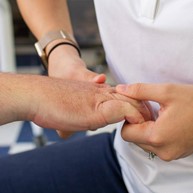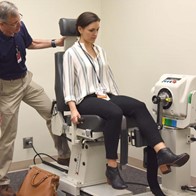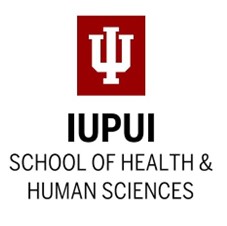SHHS SDG Report
SDG Report: IUPUI School of Health and Human Sciences (SHHS)
Tourism and global travel: SDGs 5, 8, 9, 10, 11, 12, 13, and 17
The SHHS is actively involved with the Global Business Travel Association (GBTA), the largest global business travel network and trade association, with nearly100,000 global members. Dr. Amanda Cecil is fully engaged in this initiative to corroborate and develop sustainable travel practices. In coordination with GBTA, SHHS faculty promote education, research and resources on corporate travel sustainability practices. This overarching initiative aims to educate travel managers and industry players (including airlines and hospitality companies) while proactively advocating for change in meeting the needs of people, planet, and profit in organizations. GBTA is also making a significant commitment in 2022 to set goals, push emission reductions, and collaborate on actionable sustainability priorities.
 SHHS is also focusing on understanding and enhancing the effect of the tourism industry on climate change, while enabling the building of sustainable futures after climate disasters. Dr. Becky Liu-Lastres leads this research with the impetus behind this research being the fact that tourism is an effective tool in building economies in developing and developed countries. However, tourism is also associated with the destruction of habitat, over population, and pollution. To use tourism and hospitality in a sustainable fashion requires a solid understanding of the various effects the industry can present on local- and global-scales. Such research on sustainability will ensure that economic growth can be attained without putting local lives and environment at risk.
SHHS is also focusing on understanding and enhancing the effect of the tourism industry on climate change, while enabling the building of sustainable futures after climate disasters. Dr. Becky Liu-Lastres leads this research with the impetus behind this research being the fact that tourism is an effective tool in building economies in developing and developed countries. However, tourism is also associated with the destruction of habitat, over population, and pollution. To use tourism and hospitality in a sustainable fashion requires a solid understanding of the various effects the industry can present on local- and global-scales. Such research on sustainability will ensure that economic growth can be attained without putting local lives and environment at risk.
 The prevalence of gender equality in the tourism and hospitality sector is another research initiatives at SHHS. This initiative focuses on the reduction of gender inequality in the tourism industry, studying the constraints preventing women from progressing and attaining leadership opportunities in this sector. With this research, SHHS hopes to develop and help implement effective policies in tourism corporations.
The prevalence of gender equality in the tourism and hospitality sector is another research initiatives at SHHS. This initiative focuses on the reduction of gender inequality in the tourism industry, studying the constraints preventing women from progressing and attaining leadership opportunities in this sector. With this research, SHHS hopes to develop and help implement effective policies in tourism corporations.
Addiction Recovery: SDGs 3, and 17
In collaboration with community partners, an IUPUI SHHS research team is studying occupational health strategies to enable youth addiction recovery. This research has the primary goal of adding to the knowledge of occupation therapy’s distinct contribution to mental health studies, and to reveal ways in which occupational therapists help mitigate the shortage of qualified behavioral health providers in Indiana.
Neurological and Behavioral Health: SDGs 3, and 17
 Researchers at SHHS are actively engaged in studying the neurological processes involved in rehabilitation, and behavioral health modifications resulting in quicker and more complete recoveries. Primary research is performed in key areas include investigations of biological risk factors for the development of post-traumatic headaches following mild traumatic brain injury (mTBI). Results from this study will enable identification and development of effective preventative strategies and treatment plans among civilian and military populations.
Researchers at SHHS are actively engaged in studying the neurological processes involved in rehabilitation, and behavioral health modifications resulting in quicker and more complete recoveries. Primary research is performed in key areas include investigations of biological risk factors for the development of post-traumatic headaches following mild traumatic brain injury (mTBI). Results from this study will enable identification and development of effective preventative strategies and treatment plans among civilian and military populations.
Another critical research area is motor skills recovery and neuroplasticity. The initiative uses noninvasive brain stimulation to study the brain plasticity of numerous motor skills. This work has the potential of leading to a deeper understanding of human motor activity, and improvements to motor ability rehabilitation among recovering patients and high-level athletes.
Physical Activity and Wellness: SDGs 3, and 17
Physical Activity and Wellness is an important area of research at SHHS. Researchers study the mechanisms of physical activity which benefit healthy people and those with orthopedic and neurological disorders.
 Pain management and reduction is also a principal area of study, with researchers investigating relationships between mobility and pain reduction, and the effect that interprofessional education has on reducing opioid prescriptions. Run in partnership with the IU Health Family Medicine Clinic, SHHS aims to minimize opioid usage while increasing quality of life for participants.
Pain management and reduction is also a principal area of study, with researchers investigating relationships between mobility and pain reduction, and the effect that interprofessional education has on reducing opioid prescriptions. Run in partnership with the IU Health Family Medicine Clinic, SHHS aims to minimize opioid usage while increasing quality of life for participants.
Another significant initiative is the “Healthy Me fitness outcomes” study, where the feasibility of fitness measures implementation into a clinic-based lifestyle is assessed among adults 18 years + in Indianapolis.
Models of Teaching and Learning: SDGs 4, 10, 16, and 17
SHHS is expanding the integrated case-based learning model to promote clinical readiness using videos and interactive media. The research prepares students to be critical thinkers and problem solvers in a versatile and global healthcare setting. Additionally, SHHS is constantly working towards improving the curriculum to ensure that students are prepared for the world they will work in tomorrow. Current curricular additions that are being considered include the impact of integrated clinical education on acute care confidence in entry-level physical therapy students, the potential to develop student confidence in critical-care environments through high-fidelity simulation, and the development if clinical decision making using a case rounds seminar course.
Nutrition Virtual Exchange
 Faculty members are encouraged to pursue the SDGs in their lectures and student interactions. A virtual summer exchange program, led by Dr. Lamia Scherzinger, with a focus on nutrition studies has been able to incorporate SDGs into the syllabus. Students are given the option to work as pairs and choose between SDGS 2, 3, 6, and 14, and are tasked with the challenge of coming up with novel solutions within the chosen SDG.
Faculty members are encouraged to pursue the SDGs in their lectures and student interactions. A virtual summer exchange program, led by Dr. Lamia Scherzinger, with a focus on nutrition studies has been able to incorporate SDGs into the syllabus. Students are given the option to work as pairs and choose between SDGS 2, 3, 6, and 14, and are tasked with the challenge of coming up with novel solutions within the chosen SDG.
On an individual level, faculty have also attended the Online Learning Consortium’s Institute for Emerging Leadership in Online Learning where all 17 SDGs are discussed. Afterwards, each participant selects one SDG and creates a unique artifact addressing it in the world of Online Education. Such experiences enhance and expose SHHS to novel method and ideas to implement in their contributions to a sustainable future.


